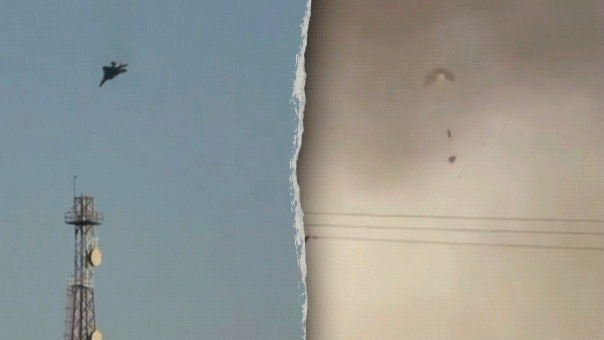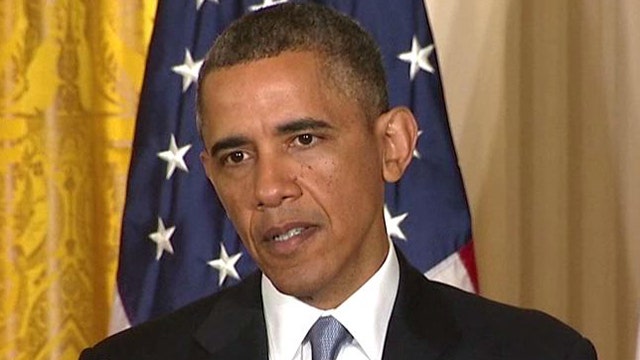Faced with mounting scrutiny over his administration's initial narrative on the Benghazi attack, President Obama on Monday called the debate a "sideshow" -- arguing he labeled the attack terrorism from the start and even dispatched a top official to the Hill to clear things up.
Obama suggested this proves there was no cover-up and no effort to downplay terrorism. But the president's re-telling of events last September appeared to clash with the actual timeline of administration statements.
Though Obama referred to "acts of terror" on Sept. 12, he and other top officials repeatedly declined to call it terrorism on subsequent occasions.
And even after National Counterterrorism Center Director Matt Olsen testified on Sept. 19 that the attack was terrorism -- which is the testimony Obama pointed to in his remarks Monday -- Obama himself declined to use the term the next day. "I don't want to speak to something until we have all the information," Obama said on Sept. 20.
Republicans were quick to pillory the president's comments Monday.
Rep. Darrell Issa, R-Calif., called it "revisionist history." John Bolton, former U.S. ambassador to the U.N., called it "flatly untrue."
"This definitely is a creative rewriting of history," Bolton told Fox News.
The president made two central claims Monday as he battled new reports that depicted an effort to water down the administration's early talking points on the attack in order to downplay terrorism.
First, Obama said: "The day after it happened I acknowledged that this was an act of terrorism."
The president has made this argument before, most forcefully during the presidential race against Mitt Romney. He is mainly referring to remarks in the Rose Garden Sept. 12 where he referred to "acts of terror" as he condemned the attack.
But for days afterward, he and other top officials would not use that term.
Later that day on Sept. 12, Obama told CBS News, when asked whether he thought the strike was a terrorist attack: "Well, it's too early to tell exactly how this came about." Obama only would call it "an attack on Americans."
White House Press Secretary Jay Carney also denied reports on Sept. 14 that it was a pre-planned attack.
And after U.N. Ambassador Susan Rice made her controversial Sept. 16 comments calling the attack the result of a protest, State Department spokeswoman Victoria Nuland was again asked if the attack was terrorism. "I don't think we know enough," she said.
Administration officials began to start publicly changing the narrative the week of Sept. 17.
Obama made a new claim on Monday as he tried to put that week in context.
The president suggested that, three days after Rice tied the attack to protests over an anti-Islam film, Olsen was dispatched to Capitol Hill to clear things up.
He was referring to Olsen's testimony on Capitol Hill Sept. 19 in which he called the attack terrorism.
"If this was some effort on our part to try to downplay what had happened or tamp it down, that would be a pretty odd thing that three days later we end up putting out all the information," Obama said. "Who executes some sort of cover-up or effort to tamp things down for three days? So the whole thing defies logic."
The comment suggested Olsen was sent to the Hill to announce the administration's conclusion that the attack was terrorism.
Yet Olsen's comment only came under questioning by a Senate committee. And at the time, his testimony was considered major news because it ran contrary to other accounts out of the administration.
Congressional sources also told Fox News last year that Olsen was reprimanded by the White House after he testified -- though the White House denied the allegation.
Further, while Olsen became the first administration official to publicly call it a "terrorist attack," other officials were not quite on board with that description at the time.
Neither Nuland nor Carney used the term that day.
The next day, while speaking to Univision, Obama declined to use the label, saying: "I don't want to speak to something until we have all the information."
However, Carney said Sept. 20 that it was "self-evident that what happened in Benghazi was a terrorist attack."
After that point, other top officials began using the term.











































